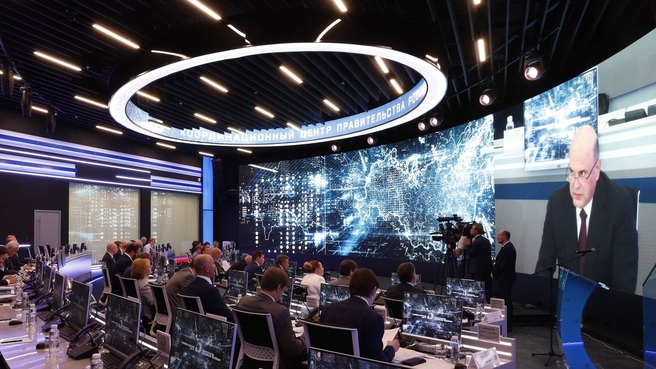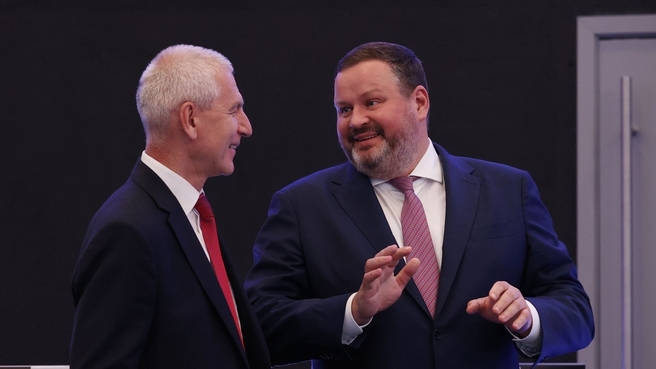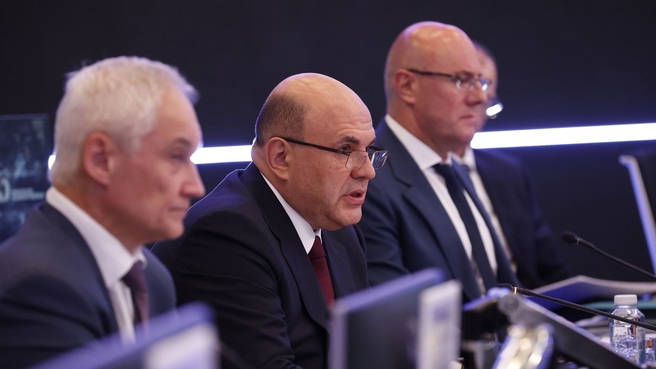Mikhail Mishustin: “Healthcare and people’s well-being, as well as worthy and effective labour, have been declared national goals by the President. Comprehensive measures are required to realise them. It is necessary to conduct a detailed assessment of the situation under conditions of external sanctions pressure. We need to fulfil all our obligations to the people and provide additional solutions for the years to come.”
Mikhail Mishustin’s opening remarks:
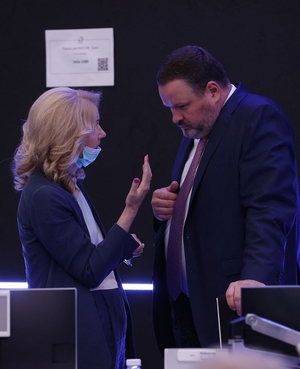
Deputy Prime Minister Tatyana Golikova and Minister of Labour and Social Protection Anton Kotyakov at a strategic session on healthcare, demography, education, culture and sport
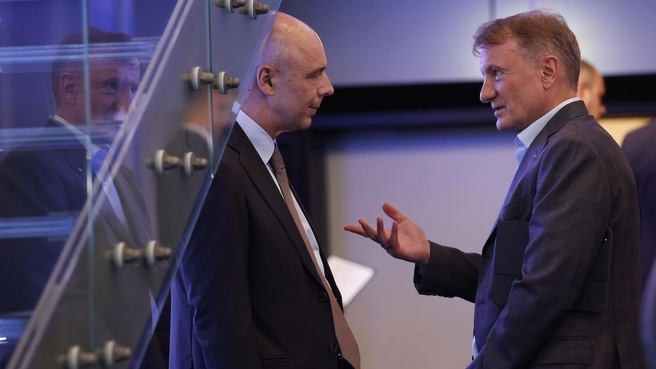
Minister of Finance Anton Siluanov and Sberbank CEO Herman Gref at a strategic session on healthcare, demography, education, culture and sport
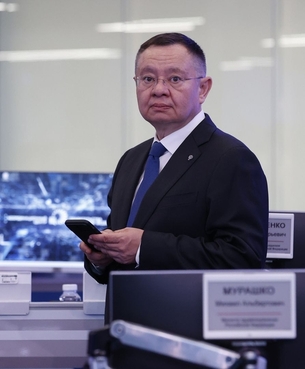
Minister of Construction, Housing and Utilities Irek Faizullin at a strategic session on healthcare, demography, education, culture and sport
Strategic session on healthcare, demography, education, culture and sport
Good afternoon, colleagues,
We are continuing with our series of strategic sessions to discuss key issues of this country’s development, with due consideration for Western restrictive measures. Today, we will focus on healthcare, demography, education and the labour market, as well as the situation in culture and sport.
These aspects are particularly important and socially significant. It would be no exaggeration to say that the results of our work regarding these matters directly influence the life of every person in the country. “Healthcare and people’s well-being, as well as worthy and effective labour, have been declared national goals by the President. Comprehensive measures are required to realise them. It is necessary to conduct a detailed assessment of the situation under conditions of external sanctions pressure. We need to fulfil all our obligations to the people and provide additional solutions for the years to come.”
I will start with healthcare.
Today, the Government has to accomplish the following main task: provide medical institutions and doctors with the essential items they need for treating patients, including medications, equipment and disposable materials. We have already implemented some measures to prevent shortages of medications and equipment; we have simplified the registration process, expedited procurement procedures, and we have imported medications that are not yet manufactured domestically, and stockpiled reserves for the next few months.
Of course, we have also supported our companies. We hope that Russia will start manufacturing 70 new medications in the next year. In the past few years, we have mastered the production of over 400 medications.
In any situation, we need to provide affordable, vitally important medications and continue to develop new pharmaceutical drugs, biomedical cell products, and modern treatment methods and technologies. The medical sector should not stop the development process, regardless of the circumstances.
One more thing: the President has issued a number of instructions to renew the healthcare infrastructure. This includes modernising the primary care system, equipping medical rehabilitation departments and upgrading equipment. We need to carry out all these plans in full. We will also have to eliminate medical personnel shortages and do everything possible to ensure stable financing.
I would now like to discuss our demographic goals. Efforts to maintain high birth rates are of paramount importance. The President has instructed us to create an integral system for assisting families with children, and we are implementing this. Today, parents who are facing financial problems can count on various state support mechanisms. These benefits cover children in all age categories, as well as single mothers and fathers, and pregnant women facing financial difficulties. We need to analyse the current support measures and create additional tools for helping people.
We will also focus on people’s well-being.
As per the President’s instruction, the Government has indexed social benefits for over 50 million people starting 1 June.
We have also promptly increased the minimum wage for over 4 million people.
Today, we need to preserve a stable employment situation, including through the implementation of sectoral strategies and by extending the current measures that have proven to be efficient. We need to pay particular attention to implementing planned personnel training projects under corporate requests and expanding labour mobility tools, primarily for our young people. In addition, we must comprehensively modernise employment institutions and upgrade them so they meet people’s needs.
I would like to dwell on the education issue separately.
School students should use the knowledge they obtain at lessons to learn careers that they like and to find their place in life.
As instructed by the President, we have started modernising the school infrastructure, so that children can study in comfortable conditions. I am talking about programmes to build and overhaul secondary schools and to update their equipment and other technical assets.
We have to implement these plans. Naturally, we are facing certain difficulties, including higher prices for construction materials and school equipment, but we are coping with them. Regarding school equipment, we boast Russian-made equivalents in virtually every sphere that are on par with foreign-made models. We will deliver certain equipment models not yet manufactured here from friendly countries.
We will continue to pay attention to the education content and to training educators. Today, I would like to hear your proposals on this matter.
We will also discuss essential actions for minimising the impact of Western restrictions on Russian culture. In this connection, we will review ideas stipulating support for the entire sector’s agencies and institutions.
We will have a separate discussion on implementing the Pushkin card project that we have launched at the President’s decision. We have already expanded its options; it is now possible to use the card for buying tickets to watch Russian films.
In conclusion, I would like to say a few words about the situation in sport.
Russian athletes were among the first to face extremely strong pressure from the collective West, although one would think that sport must always remain outside politics.
The restrictions mostly aim to oust Russia from international organisations and to deny it the right to hold championships. The most unfair aspect is that they want to deprive our young athletes of the chance to vie for victory at leading tournaments.
In these conditions, the President has instructed us to maintain competitive activities for our athletes and to stipulate new formats of competitions.
In effect, we need an efficient and absolutely independent system for training athletes and holding our national sport competitions. At the same time, it is important that we remain constantly open for our foreign partners who believe, just like we do, that sport involves mutual respect and friendship, rather than covert games and unfair competition, when they oust the strongest athletes under political pretexts.
We will continue to develop sport on the whole. The President has set a specific goal: the share of citizens regularly engaged in physical fitness and sport should reach 70 percent before the decade is out. We need to involve our professional athletes in addressing this task. They serve as the pride and an example for people of all ages, and inspire others to take up sport and to choose a healthy lifestyle, and it is therefore particularly important to support them.
